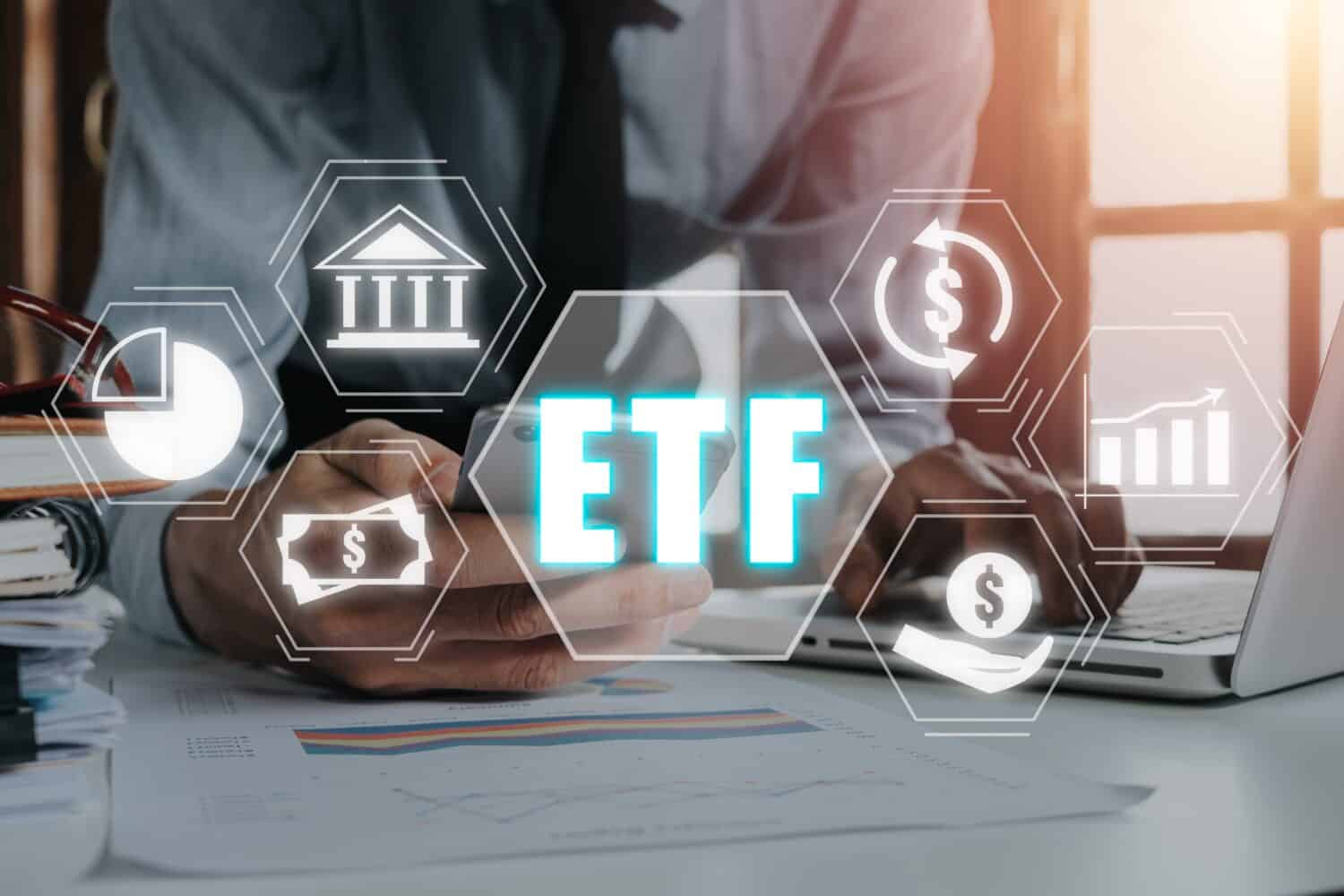
There’s been a growing sense of unease surrounding the “Magnificent 7” companies, which have been responsible for much of the S&P 500’s significant gains over the past few years. Regarding the Nasdaq 100, the heaviness at the top is even more pronounced.
Though having more exposure to the mega-cap tech titans, most of which now boast market caps in the trillions, is not necessarily a red flag itself, it’s not hard to imagine that many self-guided investors may be growing nervous about having too much of their portfolio allocated to a handful of stocks within the same sector. Indeed, staying properly diversified is incredibly important, especially if you don’t want to receive the brunt once the bear makes his inevitable return.
Now, the bull market is still relatively young after recently turning two years old. That said, it’s always wise to invest with the bear in mind so you won’t even give yourself a chance to hit the panic button once the herd does.
Key Points About This Article
- The Magnificent 7 remain magnificent picks for investors.
- Market heaviness in the seven stocks is not necessarily a bad thing. Growth-savvy investors may wish to stay market-weighted in the names as some race to a $4 trillion valuation.
- If you’re looking for some stocks with huge potential, make sure to grab a free copy of our brand-new “The Next NVIDIA” report. It features a software stock we’re confident has 10X potential.

The Magnificent 7 members are even more magnificent in the AI era.
I believe investors should stand by the Magnificent 7 companies, even as their valuations become a tad on the swollen side. They’re among the biggest beneficiaries of the artificial intelligence (AI) boom.
With the best and brightest tech talent, vast ecosystems of users, and the ability to make the most of their economies of scale, it’s hard to envision a smaller company with what it takes to catch up to them. And let’s not forget about their deep pockets, which are deep enough to scoop up any small-cap growth darlings that show any hints of tremendous promise.
Indeed, with great power may come accusations of acting as a “monopolist.” Regarding the Magnificent 7, investors should expect continued chatter from regulators. While they may move the needle over the near term, longer-term investors shouldn’t worry too much about the consequences, as most may never see the light of day.

What to make of the anti-trust risks?
Of course, anti-trust regulators could be a growing thorn in the sides of some Magnificent 7 members. The recent Alphabet (NASDAQ:GOOG) ruling may have been a battle won by federal regulators who recently labeled Google as a “monopolist.”
However, just because regulators won a battle against the Magnificent 7 members does not mean it has a good chance of winning the war. Undoubtedly, we’ve heard discussion of a potential Google breakup of late, a move that I believe is a high-impact event with an incredibly low probability of occurrence.
Though Google breakout chatter may have pressured the stock of late, I find it to be nothing more than noise. Even if Google were to be split apart, the sum of the parts would likely be worth much more, at least according to many analysts. Deepwater Asset Management’s Gene Munster seemed to think a breakup “could unlock 20% of value.” I think he may very well be right.

The best passive ways to bet on the Mag 7
So, if you’re like many who do not buy that too much Magnificent 7 exposure is a bad thing (it is getting harder to overweight them if you pick your own stocks; for instance, AAPL comprises more than 7% of the S&P 500), an ETF that’s even heavier on the seven tech titans may be worth picking up.
The Roundhill Magnificent Seven ETF (NASDAQ:MAGS) is a one-stop-shop for investors who want to quickly overweight their portfolios in the Magnificent 7 companies. The company boasts an equal weighting in each of the Magnificent 7 firms, with a quarterly rebalance to keep them each in the ballpark of (14.3%). The 0.29% expense ratio seems like a good deal, given the ETF is automatically balanced each quarter.
For investors who don’t want an ETF that’s all-in on the Magnificent 7 but seeks heavy exposure, the Invesco S&P 500 Top 50 ETF (NYSEARCA:XLG) makes a lot of sense.
The ETF is a top-50 flavor of the S&P 500 that’s even heavier at the top, with Apple (NASDAQ:AAPL), Nvidia (NASDAQ:NVDA), and Microsoft (NASDAQ:MSFT) contributing more than a third of the ETF. With a 0.2% expense ratio, the ETF is incredibly cost-efficient for those who desire a more significant weighting in the most magnificent members — the Magnificent Three, if you will — of the cohort.
It’s also notable that the XLG and MAGS have outpaced the S&P 500 in the past year, rising 38% and 52%, respectively, versus the S&P 500’s 33% gain.
The Average American Has No Idea How Much Money You Can Make Today (Sponsor)
The last few years made people forget how much banks and CD’s can pay. Meanwhile, interest rates have spiked and many can afford to pay you much more, but most are keeping yields low and hoping you won’t notice.
But there is good news. To win qualified customers, some accounts are paying almost 10x the national average! That’s an incredible way to keep your money safe and earn more at the same time. Our top pick for high yield savings accounts includes other benefits as well. You can earn up to 3.80% with a Checking & Savings Account today Sign up and get up to $300 with direct deposit. No account fees. FDIC Insured.
Click here to see how much more you could be earning on your savings today. It takes just a few minutes to open an account to make your money work for you.
Our top pick for high yield savings accounts includes other benefits as well. You can earn up to 4.00% with a Checking & Savings Account from Sofi. Sign up and get up to $300 with direct deposit. No account fees. FDIC Insured.
Thank you for reading! Have some feedback for us?
Contact the 24/7 Wall St. editorial team.





